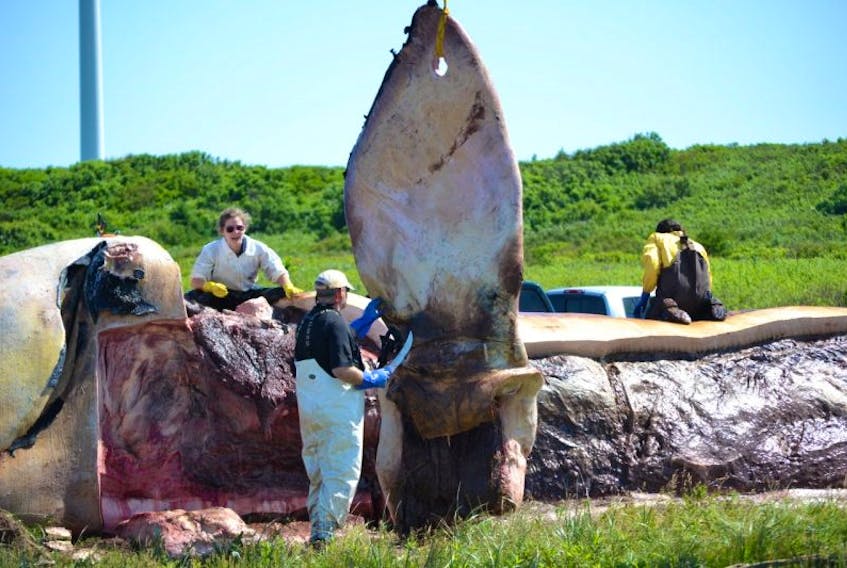An average-sized cruise ship, say at 800 feet in length, propels along at more than 25 miles an hour, weighs more than 55,000 tons — with some 25 feet of draft below the water line.
Should the two head towards a collision, the odds are not good for a right whale to get out of the way or a cruise ship to change course or speed in time. Should the two collide, there will be an obvious winner and loser.
Ten endangered right whales have died this summer in the Gulf of St. Lawrence, at least two from blunt force trauma. There are only an estimated 500 right whales left, after they were hunted almost to the point of extinction in the past century.
As the death toll mounted this summer, there was a clamour from environmental groups, scientists and concerned Canadians for protective measures. Ottawa responded by bringing in rules for ships in certain areas of the Gulf to reduce speed or change course to avoid collisions.
The traditional range for right whales is along the U.S. eastern seaboard and Bay of Fundy. Scientists are trying to figure out why they are moving into the Gulf - perhaps because of warming waters and more food options since they feed on zooplankton and krill.
While many cruise lines are following the new rules, others have abruptly cancelled port visits and shifted to other cities. Charlottetown has lost 10 cruise ships and thousands of potential visitors. Despite those cancellations, cruise ship traffic in Atlantic Canada is up significantly this year and so are the risks of collisions with whales.
Today, tourism industry stakeholders meet in Charlottetown to talk about the cancellations and the economic impact on city and province. The province supports federal efforts to prevent future whale deaths, but it also has an economy to run.
The restrictions are temporary until the 80 to 100 right whales currently in the gulf migrate south this fall, out through the Cabot Strait and close to Sydney, Halifax and Saint John, as the mammals prefer to remain close to shore. Will Canada alter shipping restrictions to match their fall migration?
Several right whales also died in American waters this year and now the U.S. is launching an investigation. Restrictions on speeds and routes may well expand south of the border. Will some cruise ships then avoid New York, Boston and other major American ports?
One of the cruise lines, which cancelled visits to P.E.I., boasts it has a comprehensive Whale Strike Avoidance program in place and takes its responsibility to be good stewards of the marine environment very seriously. Its ships have clear guidelines on how to operate if whales are sighted nearby, which include altering course, reducing speed as required and adding additional lookouts in sensitive areas.
So what is their problem obeying a few temporary Canadian shipping rules?









